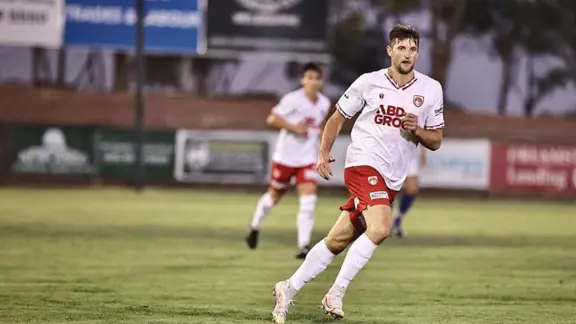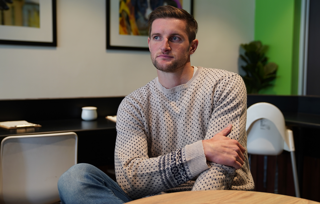Player Story
Andy Brennan after coming out: “I can’t believe how positive my experience has been”

Brennan is the first openly gay male Australian footballer. He has had an overwhelmingly positive response, but recognises that there must be many players in the lonely situation that was all too familiar to him just two years ago.
The 28-year-old Hume City forward shares his story with FIFPRO, in the hope that his encouraging experiences will provide others with reassurance, while raising awareness of behaviours and language that can have unintentionally negative effects on the LGBT+ community.
"Looking back on the way that I felt before I came out, I can’t believe how positive my experience has been. Everyone has been so loving and supportive, and I just never thought for a second that I could be as happy as I am today."
"I was so worried about how people would react; about losing friends or about teammates being uncomfortable with me in the changing rooms, or even that I wouldn’t play anymore – maybe teams just wouldn’t take me on because I was gay?"
Now that I am openly gay I can explain to people why I find their comments hurtful
"All these things were holding me back, until one split moment where I decided that I couldn’t go on like this. I pictured my life ten years from now, and I just thought I can’t be 35 and still denying who I am. I had this gut-wrenching vision of settling down and starting a family and it would all be a lie – I couldn’t do that to myself or to anyone else. In that moment I flipped my fears: if my friends couldn’t accept this integral part of me, if football didn’t want me anymore - then I didn’t want them in my life either."
"In the time that has passed since then I have never received any direct discrimination from players or fans, which is something that I’m so thankful for. However, this doesn’t mean that the fears that I felt were unfounded, and these are fears that statistically other male footballers must still be concealing today. To make football a more welcoming environment for these players, we need to address not just overt homophobic abuse, but also the more subtle, and perhaps unintentional, ways that we negatively address the gay community."
"When I was growing up, “that’s so gay” was used all the time as an expression for something that was bad, and I admit that I contributed to it because it was such a common turn of phrase. It might feel like a throwaway comment to some, but it builds connotations that being gay is a negative thing, and it took a long time for me to recondition this in my head."

"There are plenty of other examples of, much worse, words and language which associate gay people with really negative characteristics and before I came out I just felt that this was how everyone was going to see me if they knew who I really was. I didn’t have any gay role models, or players that I could look up to that were going about their lives despite their sexuality so I just didn’t see a world where I could be accepted."
"Now that I am openly gay I can explain to people why I find their comments hurtful, and that that these words had a really bad effect on me growing up – and it’s always been met with a positive response. Some of my teammates have actually started calling other people out for inappropriate language, even when I’m not there. It’s amazing to see how quickly this education and understanding can spread to create a more progressive environment."
"My coming out was a completely personal decision, and it never even occurred to me that my openness would be such a positive step for other people, not just in the changing room – but for fans as well. I had so many messages from people saying how happy it made them to see someone in the public eye doing what they love without fear of being who they are. I just found that so powerful, that individuals were drawing courage from my experiences and that I had somehow made a difference to their lives."
I was ready to give up football, and no amount of fame or money would have changed that
"I used to dream of being a professional footballer because I want to be the best and play at the highest level, and now I have the same wish, but for a completely different reason. I wish that I was playing in the top tier of world football purely because of the impact I would have made when I came out. Imagine the amount of people I would have reached and the progress I could have made for gay people in the game had I been playing in the Premier League."
"I know it’s different saying this from Australia where the sport isn’t as all-consuming as elsewhere in the world – but the way that I felt in that moment when I decided to come out, I would have given anything up to accept myself for who I am. I was ready to give up football, and no amount of fame or money would have changed that."
"I hope that sometime in the near future there is a player who has the confidence to come out at this level – without having to consider career ultimatums. It’s our job to create a society that makes him feel comfortable enough to do so."
